

Tao Te Ching

French Lineage
Long a a global center of science, art, and philosophy; France was populated by Celtics during the Iron Age, became part of Rome in 51 BCE, the Kingdom of France in 486, a major power in 1453 after the Hundred Years' War, Europe's most influential cultural and political power during the late 18th century, and the second largest colonial empire by the 20th century. An innovative beacon of freedom, equality, and high culture, today, with the world’s second best international reputation, more tourists visit France each year than any other country in the world.
People (37)
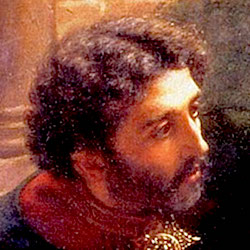
Peter Abelard Pierre Abélard
1079 – 1142 CE
Peter Abelard, Pierre Abélard (1079 – 1142)
Described as "the keenest thinker and boldest theologian of the 12th Century,” Abelard was on a strong path to becoming a pope when he fell in love with Héloïse and instead wrote some of the most important books of his era while becoming a legend in the history of romantic love, of inner certainty over external, status quo coersion. In his early life, thousands of students coming from many countries came to hear him teach. His fame and admiration immense, but his love of Héloïse led to his castration by her uncle, his becoming a monk, and her becoming a nun. This challenged the physical side of their relationship but their deep emotional bond continued through letters written the rest of their lives.
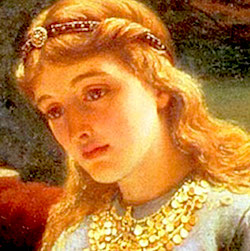
Heloise
1090 – 1164 CE
An orphan raised in a convent, Héloïse became a brilliant scholar, one of the earliest and most radical feminists, a powerful abbess over multiple convents, and half of one of the most famous and talked about relationships of her era. As femme fatale to Peter Abélard when he was on the rise toward becoming a pope, her influence caused him immense humiliation and pain as well as the inspiration for some of the most important books of the time, a regard for the sense over the words, and a declaration of philosophical independence for reason over belief. It’s become a tradition for the hoping-to-find-true love to leave letters at their crypt.
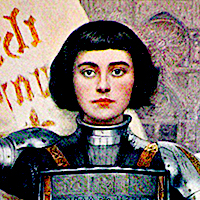
Joan of Arc Jeanne d'Arc
1412 – 1431 CE
Mystical, visionary warrior
Famous French heroine, Roman Catholic saint, warrior and mystical visionary; Joan of Arc was sent on a relief mission during the Hundred Years' War between France and England. Turning relief into victory, she quickly became a successful military leader and set up a final French victory. Captured by a group of dissident French nobles however, she refused to abandon her convictions and was burned at the state when still only 19 years old. This led to her beatification by the Church and Napoleon’s making her into a French national symbol. For subsequent generations, she became a powerful symbol of a brave and accomplished woman.

Montaigne
1533 – 1592 CE
Grandfather of the Enlightenment
Son of a fish-seller, grandfather of the Enlightenment, “the first modern man,” statesman, author, apostle of doubt and moderation, Renaissance author most in harmony with the modern mind; Montaigne wrote some of history’s most influential essays. A master story-teller balancing philosophy with personal anecdote, deep insight with entertainment, wisdom and humor; he built on Lucretius and had a direct influence on Francis Bacon, Descartes, Pascal, Rousseau, Emerson, Nietzsche, and Shakespeare. “The most pagan of Christians,” called “the wisest Frenchman that ever lived,” he is still “read today as if he had written yesterday
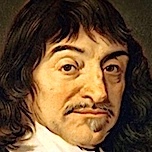
René Descartes
1596 – 1650 CE
Though remaining a Catholic, solidifying the dualistic view in Western thought as well as “Cogito ergo sum” belief in a separate self; Descartes emphasized methodic doubt and the impossibility of externally based intellectual certainty undermining faith in belief and Church doctrine. This sparked a thought revolution that created the modern era. He developed analytic geometry (using x, y, and z for unknowns) and using superscripts for powers or exponents, discovered the law of reflection, and the basis for the development of calculus. Known as the “father of modern philosophy,” he changed the course of Western philosophy and his influence continues to this day.
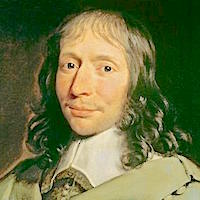
Blaise Pascal
1623 – 1662 CE
One of the greatest French writers of all time
Theologian, inventor, physicist, philosopher; Pascal invented the mechanical calculator, set up the first bus line moving passengers, became one of the greatest French writers, and developed probability theory which has become critical to economics, actuarial science, and the way we understand decision-making and risk. Although he identified with Jansenism which emphasized original sin and human depravity and frequently fixated on religious dogma, his understanding extended to a deep realization of our strong propensity toward projection and self-deception as well as a philosophy of cutting through this kind of deceit and duplicity. His significant scientific contributions led to attaching his name to a programming language, a unit of pressure, and a hydrostatic law. Will Durant called one of his writings, "the most eloquent book in French prose.”
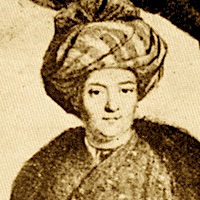
François Pétis de la Croix
1653 – 1713 CE
Early and influential orientalist
Translator, orientalist, interpreter, diplomat, and extensive traveler; Pétis de la Croix knew and spoke Arabic, Persian and Turkish. This led him into pioneering oriental studies of Sufism, the Masnavi Philosopher's stone, and the Muslim Qur'an. Much of his work however needed to be discrete and unpublished because his era was constrained by Catholic censorship, the witch craze, and extreme penalties for unorthodoxy. His influence did, however, inspire other works including Carlo Gozzi's The King Stag and Turandot. Benjamin Franklin popularized his publication of Genghis Khan's biography which became an influence on Thomas Jefferson and his Virginia Statute for Religious Freedom.
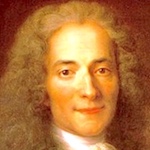
Voltaire, François-Marie Arouet
1694 – 1778 CE
Nemesis to tyrants and fanatics of all styles, powerful fighter for civil rights, separation of church and state, freedom of speech and religion; Voltaire drank up to 72 cups of coffee a day and wrote more than 2,000 books and pamphlets. Admiring Confucian ethics and political theory, his writings inspired the founders of America, the best thinkers of his time, numerous kings, queens and world leaders, millions of people in every generation since. To a large extent we owe to his influence much of the freedoms in the world today; the humane treatment of the insane, sick, and criminal; the number of libraries, schools, and universities for common people. Historian Will Durant wrote, “When we cease to honor Voltaire, we shall be unworthy of freedom.”
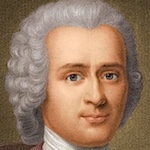
Jean-Jacques Rousseau
1712 – 1778 CE
Motherless from almost birth, abandoned by his father, poor in health and income; Rousseau wandered on his own for 12 years challenging the status quo and rejected by society as a dangerous rebel or insane criminal. Stoned by neighbors when he went for walks, harassed by police, and expelled from countries; he went on to become “the finest thinker of his time,” a main source for Jefferson and the Declaration of Independence, a cause of the French Aid for the American Revolution, and a seminal influence on Tolstoy, Wordsworth, Thoreau, Byron, Shelly, Keats, Schopenhauer, Kant, Goethe, and Marx. He transformed education, inspired the French Revolution and the Romantic Movement, wrote political and social books that became cornerstones of modern thought.
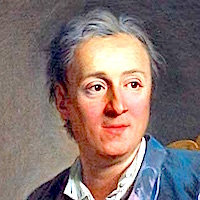
Diderot
1713 – 1784 CE
Philosopher, art critic, scientist, and writer; Diderot was imprisoned in solitary confinement for his philosophical views and mainly only known for his plays and encyclopedia during his lifetime. His rival Rousseau though believed posterity would give him the same respect as Aristotle and Plato and he was later admired by Goethe, Schiller, Balzac, Zola, and Schopenhauer. He was Karl Marx’s favorite prose writer and Comte called him the “foremost intellectual of an exciting age.” He worked on the Encyclopédie as a way of giving power to the common person and emphasized religious tolerance, freedom of thought, the value of science, and—threatening the French aristocracy—maintained that the main purpose of government should be benefiting the common people.
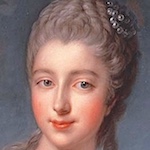
Madame de Pompadour (Jeanne Antoinette Poisson)
1721 – 1764 CE
Called by Will Durant “One of the most remarkable women in history” as “the most cultured woman of her time” and by Voltaire “one of us,” Madame de Pompadour as chief mistress of Louis XV became a brilliant governor of France, protector of Voltaire, savior of Diderot’s Encyclopedie, patron to Rousseau, Montesquieu, and the “Age of Enlightenment” in general. Excommunicated by the Catholic Church and the “Queen of Rococo,” she supported philosophy, literature, music and art as porcelains, hair styles, dresses, chairs, ribbons, beds, and dishes were named after her. Beautiful, charming, and intelligent, she led France to its highest artistic influence on European civilization as well as making her country much stronger economically and politically.
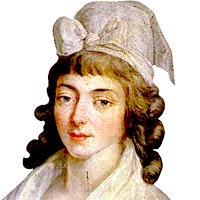
Madame Roland (Marie-Jeanne Phlippon)
1754 – 1793 CE
Revolutionary heroine
Sole survivor of her mother’s 8 pregnancies, Madame Roland became a revolutionary heroine and one of the mainspring influences of the French Revolution. A student of Plutarch, Voltaire, and Rousseau; her clear intelligence, wisdom and drive made her the equal to any of the contemporary politicians proving the capabilities of women in the political realm. Her drive, focus, and radiant intelligence made her the equal in accomplishments of any contemporary male politician. Sacrificing her life for her political beliefs, she died by guillotine during the French Reign of Terror with the famous words, “Oh Liberty, what crimes are committed in thy name!”. Her memoirs written in prison became a testament to the possibility of balancing freedom and equality as well as evolving potentials for a woman’s place politics.
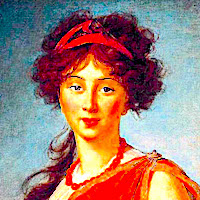
Madame de Staël (Anne Louise Germaine de Staël-Holstein)
1766 – 1817 CE
"The greatest woman of her time"
Powerful political advocate, “first woman of Europe,” fascinating conversationalist, "Napoleon's Nemesis," and preeminent authoress of the time; Madame de Staël inspired and encouraged the political opposition to the Reign of Terror and later to Napoleon and was banished for her efforts. A potent influence on European Romanticism and persuasive advocated of liberty, she sponsored and led salons, wrote novels, and important speeches. Praised by Tolstoy, her political influence advanced representative government, constitutionalism, and women’s rights. Her opposition to dictatorship brought her into intense conflict with Napoleon and she was considered—along with England and Russia—one of the 3 main forces against him. Struggling with opium addiction and suicidal depression, a close friendship with Juliette Récamier enabled her to continue and become—in Macaulay’s phrase—“the greatest woman of her time.”
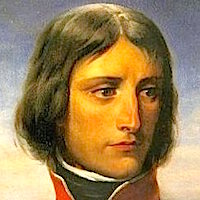
Napoleon Bonaparte
1769 – 1821 CE
Napoleon Bonaparte (1769 – 1821)
Called by historians everything from a megalomaniac worse than Hitler to an enlightened monarch responsible for creating some of the best political and legal systems in the modern world; Napoleon became a French general when only 24, a national hero at 26, and – attributing his success to meditation - one of the most successful commanders in all of history. Father of the European common market, his Napoleonic Code became a foundation for legal systems used today by 1/4 of the world's population, 70+ countries in Europe, the Americas and Africa. Inspired by the liberal vision of the French Revolution, he helped end feudalism, encouraged science and the arts, institutionalized equality before the law, property and religious rights, meritocracy, and our modern educational system. Excommunicated by the Catholic Church, he abolished the Spanish Inquisition and emancipated from ghettos Jews and Protestants in Catholic countries, Catholics and Jews in Protestant countries.

Novalis
1772 – 1831 CE
Poet, philosopher, mystic and civil engineer, Novalis (Georg Philipp Friedrich Freiherr von Hardenberg) only lived 28 years but in that short time still managed to condense his insight and poetic wisdom influencing Emerson, Hermann Hesse, Rilke, C.S. Lewis, Borges, and through George MacDonald, Tolkien, Mark Twain, GK Chesterton, Madeleine L'Engle. the Inklings, and the entire fantasy genre in literature.
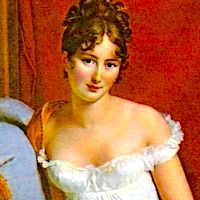
Juliette Récamier (Jeanne-Françoise Julie Adélaïde Récamier)
1777 – 1849 CE
Prototype of beauty, grace, charm, and loyal integrity
Icon of neoclassicism, prototype of beauty and grace who with “a sensuous pliancy stirred a hundred males without any known harm to her virginity,” lover of literature, patron of artists and intellectuals; Juliette led an interesting life that purportedly included marrying her father when she was 15, being exiled from Paris by Napoleon for her liberal views, losing a great fortune but remaining dignified and influential, and turning down a marriage proposal from a Prussian Prince who she deeply loved. Sex is a kind of currency that women have used throughout the ages to get what they want—food, affection, wealth, power, fame, security. Unlike money though that grows with time and interest, this particular kind of currency normally diminishes with age. Juliette however, became so adept at using this natural resource that it continued working for her in spite of old age and even blindness.
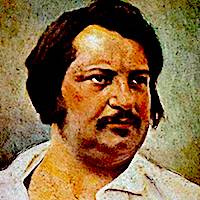
Balzac (Honoré de Balzac)
1799 – 1850 CE
(–1850)
Novelist, playwright, journalist, founding influence on European realism; Balzac only lived 51 years but wrote 92 novels, many short stories and plays. Famous for his 2000+ morally ambiguous and multi-faceted characters, he called himself a “Secretary of Society” and thought of his novels as a kind of history. He pioneered and made popular both the “novel of ideas” and the multi-generational, sequencing novel that carried characters from one story and period of their life to another. A dramatic failure in most of his life, he ran for a political office but only received 20 votes while just one of the other candidates had almost 160,000. No matter how much money he made, he was never self-supporting because of an insatiable appetite for luxuries and he had to frequently change homes and names to hide from creditors. Multiple business ventures failed miserably but his money-making optimism didn’t fade. His influence extended to luminaries like Émile Zola, Charles Dickens, Jack Kerouac, Henry James, Akira Kurosawa and Friedrich Engels among many more.
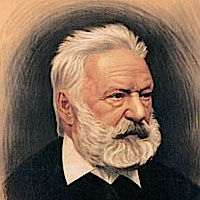
Victor Hugo
1802 – 1885 CE
Literary pioneer, poet, and social justice provocateur
Romantic literature pioneer, poet, artist, and one of the greatest French writers; Victor Hugo’s work influenced most of the social and political issues of his time. His literary success opened doors into the political world and he became more and more involved in politics. He campaigned against capital punishment and social injustice, for more freedom of the press, free education for children, universal voting rights, and a “United States of Europe.” While his books helped create important cultural and social shifts, his political efforts led to exile, a condemnation from Napoleon III, and death threats from mobs outside his house. His political work on ending the death penalty, however, did lead to its abolition in Geneva, Portugal, and Colombia. Two plus million people walked in his funeral procession and today almost all French cities have named streets after him.

George Sand (Amantine Lucile Aurore Dupin)
1804 – 1876 CE
Intriguing, inspiring, and subversive; France's most famous 19th C. woman writer; friend to Franz Liszt, Balzac, Henry James, Browning, Dostoevsky, and Turgenev; famous lover of composer Chopin, and famous actress Marie Dorval, George Sand was a cross-dressing, cigar and hookah smoking, rebellious and scandalous dramatist and campaigner for important political reforms. Not the most likely person for this list, her creative courage and compassionate kindness make it an easy choice. As she wrote, “Know how to give without hesitation, how to lose without regret, how to acquire without meanness.”
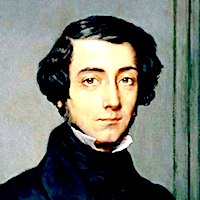
Alexis de Tocqueville
1805 – 1859 CE
Pioneering researcher into the conflicts between freedom and equality
French diplomat, historian, political scientist, and one of the founding theorists of sociology; de Tocqueville analyzed social conditions, living standards and the relationship of the individual to the state. Active in politics and strong proponent of political freedom, he traveled through the United States in an effort that produced one of the most influential books of the time—Democracy in America—as well as helping Europe transition from an aristocratic to a more democratic political order. Although the rallying cry of the revolutions he supported was “Freedom and Equality”, he described the conflict between the two and the need for balance. Pointing out the potential of a tyranny of the minority, the dangers of individualism, materialism, and majority rule leading to mediocrity; he predicted many of the social issues we grapple with today.
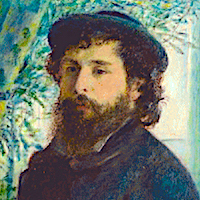
Claude Monet
1840 – 1926 CE
"the driving force behind Impressionism"
A founder, instigator, and vivid example of Impressionist painting; Monet brought Boudin's dictum of preserving "one's first impression" to artistic near-perfection. It was only shortly after his birth that the discovery of metal-tubed pigments made painting outdoors practical. This new technology opened up an expansive world of light variation and Monet—like ancient explorers of uncharted new lands—launched exploratory journeys into these new visual countries. He frequently painted many times the same scene under differing light conditions.
Beginning his commercial artistic career at only 15 selling popular caricatures, this initial success disqualified Monet from the acclaimed art schools and sent him on a road of his own including years on the move avoiding creditors and seeking a home and place to paint. Unlike the majority of pioneering artists, however, he was recognized during his lifetime and died both prosperous and famous. During the last half of his life, he traveled less and less while cultivating the gardens of Giverny which—like his paintings—included bright patches of color in a messy but balanced whole.
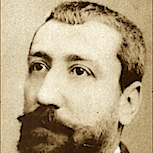
Anatole France (Jacques Anatole Thibault)
1844 – 1924 CE
Son of a bookseller and true bibliophile, librarian for the French Senate, and modern lineage holder of Epicurean thought; Anatole France was venomously attacked by Nazi collaborators but defended and admired by George Orwell. His entire set of writings were banned and prohibited by the Roman Catholic Church but in 1921 awarded the Nobel Prize in Literature "in recognition of his brilliant literary achievements, characterized as they are by a nobility of style, a profound human sympathy, and grace.” Journalist, poet, social commentator, historian, playwright, and famous novelist; he became the model for a narrator in Proust's In Search of Lost Time.
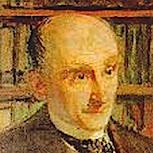
Henri-Louis Bergson
1859 – 1941 CE
The Plotinus of our era, proponent of the Lucretian tradition, awarded the 1927 Nobel prize in Literature and France’s highest honor the Grand-Croix; Bergson developed an open and nonsystematic philosophy based on mystical experience and a revolutionary concept of Multiplicity to replace dualism and Hegel’s dialectic. Close friend and collaborator with William James; Nikos Kazantzakis studied under him, his ideas on creative evolution influenced Teilhard de Chardin, and his ideas were provocative enough to be condemned by the Vatican and criticized by Bertrand Russell, Heidegger, Sartre, T.S. Eliot, Julian Huxley, Einstein, even Virginia Woolf. A Jew converted Catholic, he emphasized immediate experience and intuition over reason and science — the sense over the words.
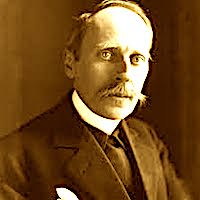
Romain Rolland
1866 – 1944 CE
“The moral consciousness of Europe”
Novelist, historian, dramatist, and mystic; Rolland had a subtle but profound influence on his time. Hermann Hesse dedicated his book, Siddhartha to him and Rolland’s influence shines out through those pages. A student of Swami Vivekananda his understanding and appreciation of Eastern mysticism became an important influence on his friend, Sigmund Freud who began his book, Civilization and its Discontents with a discussion of Rolland’s description of an "oceanic feeling.” Addressing social ills through art and theater, he wrote and staged plays like The Time Will Come, a pacifist drama that explores the cause and effect relationship between capitalism and imperialism as well as exposing the evils of concentration camps and and the inhumane treatment of enemy civilians. He won the Nobel Prize for Literature in 1915.

Madame Curie (Maria Salomea Skłodowska)
1867 – 1934 CE
The first woman to win a Nobel Prize, to win one twice, and the only person ever to win the Nobel Prize in multiple sciences; Madame Curie’s work was “epoch-making” - a huge influence shaping modern times. Though revolutionizing physics and chemistry, she maintained her honesty and moderate life style often refusing honors, insisting monetary awards be given to institutions rather than to herself, and (like Ben Franklin) refusing to patent many of her inventions so that they would be more widely available. Albert Einstein said she was most likely one of the only people in the world who could not be corrupted by fame.
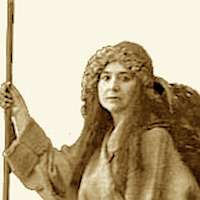
Alexandra David-Néel
1868 – 1969 CE
Author of over 30 books on Eastern religion, explorer, opera singer, and anarchist; Alexandra David-Néel became an important influence on the beat writers like Jack Kerouac and Allen Ginsberg as well as Eastern philosophy popularizers like Alan Watts. Only daughter of an exiled French political activist, she became serious about esoteric spiritual practices at an early age and by 15 was practicing austerities, fasting, and following the practices of ascetic saints. When 21, she became a Buddhist. A fearless explorer, she disguised herself as a beggar/monk, smeared her face with soot, and visited the highly forbidden city of Lhasa in 1924. Like Marco Polo, upon her return she became famous but unbelieved.
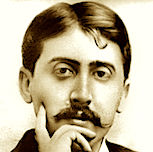
Marcel Proust
1871 – 1922 CE
Apostle of Ordinary Mind
Apostle of ordinary mind, the “Proustian moment,” and one of the world’s greatest novelists; Proust never worked a job, suffered ill health his entire life, lived with his parents, and spent his last years in bed sleeping all day and writing all night. W. Somerset Maugham called his 3200-page novel, In Search of Lost Time the "greatest fiction to date” and - a huge influence on modern writers - it’s Michael Chabon’s favorite book, in lists of top 10 greatest books of all time, and called "the most respected novel of the twentieth century." Abandoning dramatic action and complicated plot, his novels evoke the sacred in the commonplace, wonder and magic of ordinary experience, and propose art in everyday life as the true meaning of life deeper than all fame, fortune, pleasure, power, or even love.
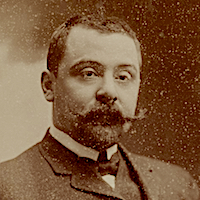
Elie Faure
1873 – 1937 CE
French art historian and essayist
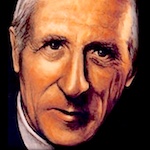
Teilhard de Chardin
1881 – 1955 CE
Philosopher, geologist, Jesuit priest and paleontologist, Chardin traveled extensively across China and helped discover Peking Man. Although frequently condemned and censored by church officials and his writings banned, later popes, cardinals and theologians praised him and his ideas. Similarly reviled and revered by scientists and described as everything from a “charlatan” to “one of the century’s most prophetic thinkers,” his life manifested the cutting edge of consciousness evolution he described so clearly.
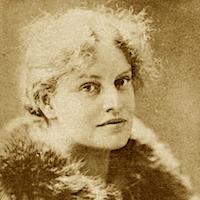
Marie Bonaparte
1882
Princess, psychoanalyst, sex scientist
Princess of Greece and Denmark, author, psychoanalyst, granddaughter of Napoleon’s younger brother and the main Monte Carlo real-estate developer; Marie Bonaparte used her wealth to help Freud escape from Nazi Germany as well as significantly increase the popularity of psychoanalysis. Because of multiple phobias and hypochondria when she was young, she spent much of her time alone reading, studying, and working with the scientific method. This research continued after her marriage and multiple affairs failed to give her orgasms and she did many studies that finally brought her to Freud and his famous comment to her, "The great question that has never been answered and which I have not yet been able to answer, despite my thirty years of research into the feminine soul, is 'What does a woman want?’”. A practicing psychoanalyst, she founded the French Institute of Psychoanalysis, translated Freud’s books into French, wrote several of her own on psychiatry as well as a biography and commentary on Edgar Allan Poe.
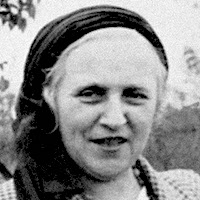
Jeanne de Salzmann (Madame de Salzmann)
1889 – 1990 CE
Follower, preserver, and promoter of Gurdjieff's teachings
Eurhythmics dance teacher, daughter of a famous architect, and married to "former dervish, former Benedictine, former professor of jui-jisu, healer, stage-designer, inventor, and the greatest of living painters," Alexander de Salzmann; Madame de Salzmann met Gurdjieff in 1919, studied with him closely, and continued promoting and organizing his teachings for the next 71 years. She founded, help fund, organized or taught in Gurdjieff Institutes and Foundations in Paris, New York City, London, Caracas, and many smaller groups in many parts of the world.
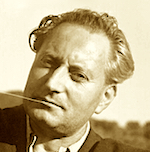
Jean Giono
1895 – 1970 CE
Jean Giono (1895 – 1970)
Son of a cobbler, one of France’s greatest writers, twice imprisoned pacifist, follower of Walt Whitman’s egalitarian pantheism, and grandfather to the modern ecological movement; Giono wrote numerous novels, short stories, articles, and poems. A master of metaphor, his masterpiece work The Man Who Planted Trees was rejected by Reader’s Digest for being too metaphoric. In response, Giorno refused any royalties, surrendered all his rights releasing it into the public domain, and gave free use to anyone who wanted to use it. Within 4 years it was translated into 12 languages and soon became a classic inspiration for everyone concerned with the environment and sustainability. An animated version won an Academy Award in 1988 and it’s considered one of the best animated films of all time.
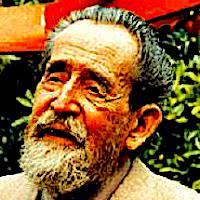
Dane Rudhyar ( Daniel Chennevière)
1895 – 1985 CE
Agent of cultural evolution
Modernist composer, transcendental artist, science fiction writer, philosopher, and founder of transpersonal astrology; Rudhyar thought of himself as a “seed” spreading a new era of cultural evolution. Prolifically creative his entire life, scholars consider his most fruitful period beginning when he was 74. During the next 10 years, he published several books a year including many insightful works on planetary consciousness. After performing one of the first original polytonal orchestral pieces in the United States, he met a Zen teacher and began studying Eastern philosophy. This led to an emersion in Theosophy, Jungian psychology, humanistic astrology, and the New Age movement. Living and teaching in 1960’s San Francisco, he became a major influence on the counter culture. He helped transmute much of the time’s superstitious allurements into symbolic interpretations and psychological insights.

Antoine de Saint-Exupéry
1900 – 1944 CE
French war hero, famous writer, poet, journalist, pioneering aviator, and an international inspiration for social aid and humanitarian projects; Antoine has the unique distinction of having his books banned by both Nazi occupied France as well as de Gaulle’s “Free” France. Modern France though voted The Little Prince the best book of the 20th century and holds him in such high esteem that his image and several of his drawings were printed on paper money, coins, and the stamps of more than 25 countries. Translated into more than 250 languages and full of deep but simple wisdom, The Little Prince is the 4th most-translated and one of the best selling books of all time.
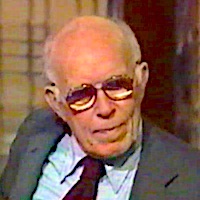
René Dubos
1901 – 1982 CE
Influential scientific environmentalist
Microbiologist, leading humanist and influential environmentalist; Dubos wrote 32 books including a Pulitzer Prize winner. Creator of the famous phrase, "Think Globally, Act Locally," he empowered and entrusted individuals, local, and small organizations making needed changes rather than relying only on large, impersonal, and out-of-touch institutions. He argued that only local, small-scale organizations can clearly see and respond to their "unique physical, climatic, and cultural contexts." He balanced this sentiment, however, with an emphasis on need for communication with a world order conscious of environmental priorities. While not ignoring our immense global challenges, he conveys an optimistic, positive, and realistic approach.
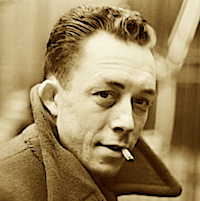
Albert Camus
1913 – 1960 CE
Journalist, playwright, philosopher, pacifist, philhellene, winner of the Nobel Prize in Literature, and Paradox of the Absurd champion; Camus grew up with an impoverished and illiterate mother who survived working as a house cleaner after his father was killed in WWI. Devoted to human rights, he worked in the French Resistance, for UNESCO, and protested against the Soviet police state. He passionately opposed capital punishment as well as all the other forms of totalitarianism. Philosophically he understood relative versus absolute understanding, rejected hope, criticized nihilism, pointed out the absurdity of our many paradoxes and confused, dualistic fixations, and explored the absurdity of finding the meaningfulness of life in external action. In many ways he wrestled with the same issues as Protagoras, the Buddha, and Lao Tzu.
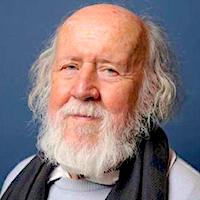
Hubert Reeves
1932 CE –
Prolific science popularizer, professor, NASA advisor, and successful Director of Research; Reeves continues to lead a long and productive life dedicated to avoiding scientific pitfalls and encouraging a sane and wise approach to scientific development. A good example of how science can blend and merge with spiritual understanding—like Aldous Huxley's more philosophical concluding realization—Reeves summarizes his scientific understanding with the recognition that the most important priority in life is to be kind and help people.
Related Sources (0 sources)
Quotes about the French Lineage (7 quotes)

“France... I have traversed several provinces. In some half the inhabitants are crazy, in others they are too artful, in some they are usually quite gentle and stupid, and in others they think they are clever, in all of them the chief occupation is making love, the second sandal-mongering, and the third talking nonsense... Paris... is a chaos, a throng where everybody hunts for pleasure and hardly anybody finds it”
Comments: Click to comment
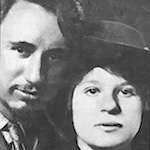
“Italy had a Renaissance, and Germany had a Reformation, but France had Voltaire; he was for his country both Renaissance and Reformation, and half the Revolution. He was first and best in his time in his conception and writing of history, in the grace of his poetry, in the charm and wit of his prose, in the range of his thought and his influence. His spirit moved like a flame over the continent and the century, and stirs a million souls in every generation.”
Comments: Click to comment

“In France, we have wavered between Voltaire defending reason with wit and Rousseau pleading with tears for the rights of feeling.”
Comments: Click to comment

“The rival hungers that found clearest voice in the French Revolution: the hunger for freedom—of movement, growth, enterprise, worship, thought, speech, and press; and the hunger for equality—of access to opportunity, education, health, and legal justice... the hunger for liberty to the detriment of equality; the hunger for equality, at the cost of liberty... freeing individualism to the point of a destructive disorder, and freeing superior ability to repeated crises of concentrated wealth... no discipline has checked the similar disorder in our times.”
Comments: Click to comment
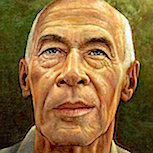
“More than anything the French have a profound knowledge of the ways of life. They possess a tolerance and an acceptance of the way things are. Problems are faced with intelligence, patience, and a sense of humanity. I have more respect for them than any other nationality on the face of the earth.”
Comments: Click to comment
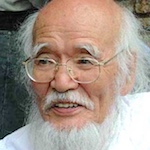
“the decline of European civilization arises from the Western philosophy of placing onesef first; that in trying to protect one's person with a stone castle Europeans have ended by enclosing the self within a prison.”
Comments: Click to comment
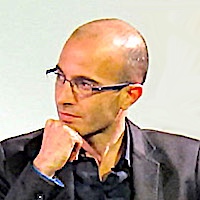
“What good was the French Revolution? If people did not become any happier, then what was the point of all that chaos, fear, blood, and war?... People think that this political revolution or that social reform will make them happy, but their biochemistry tricks them time and again.”
Comments: Click to comment
Comments (0)